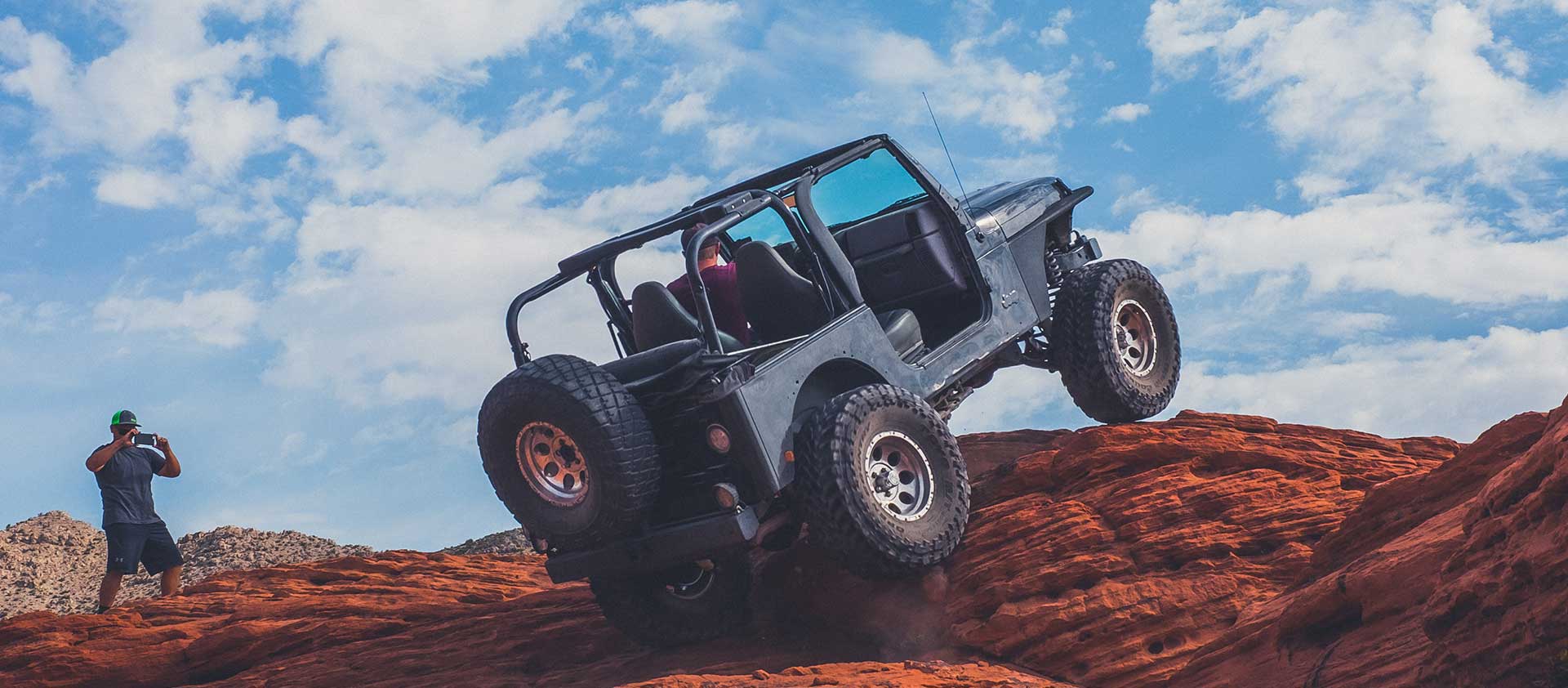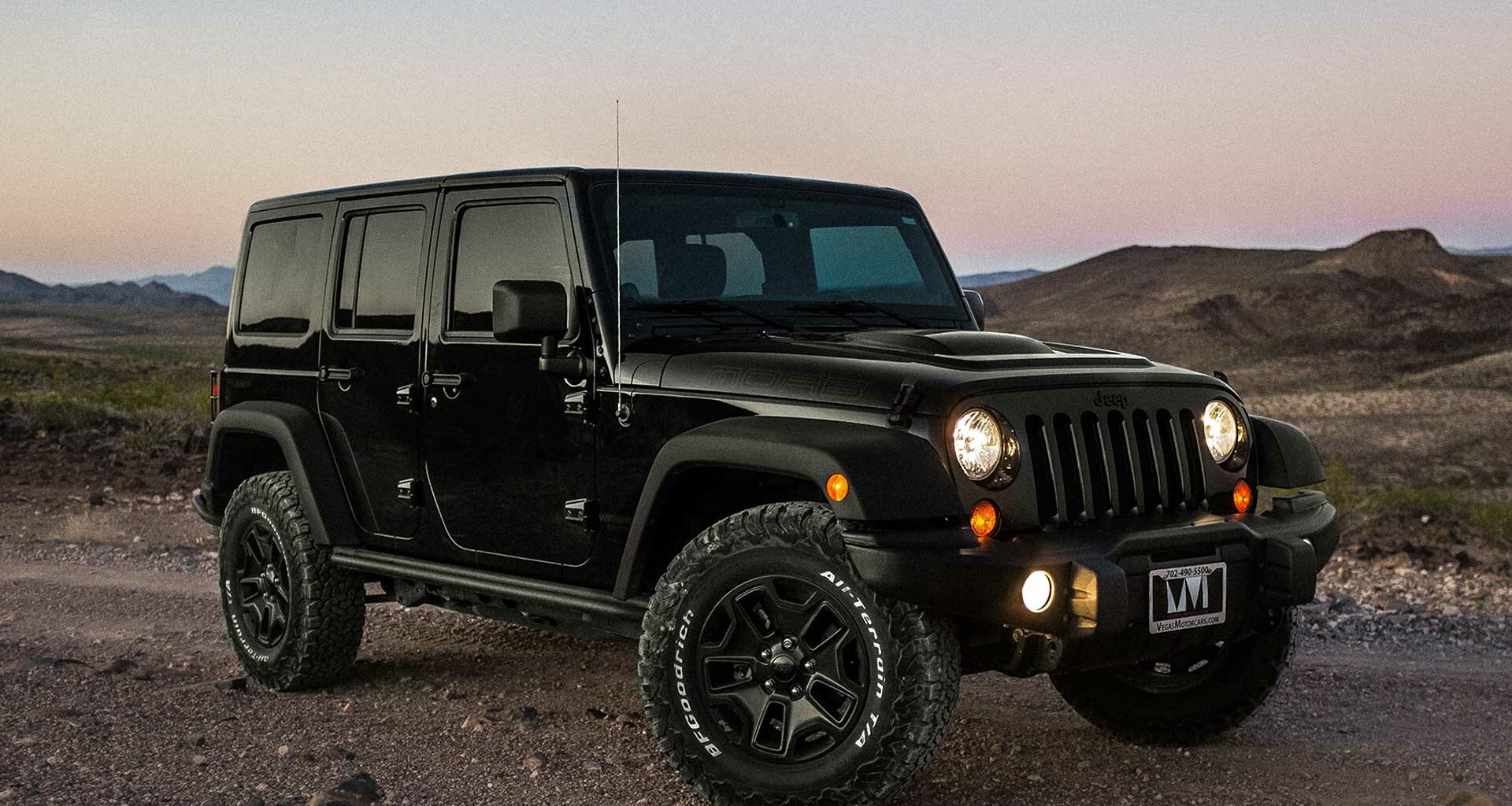What is it about Jeep brand loyalty that has put the iconic brand at the top of America’s Most Patriotic Brand rankings for 19 years straight?
The most recent Brand Keys survey of America’s Most Patriotic brands put the iconic Jeep brand at the very top of the list. That fact alone shouldn’t surprise anyone – after all, Jeep has been producing uniquely “American” vehicles since the Korean war. What is surprising however, is that Jeep has held that spot for the past 19 years! In fact, a look back at past years’s surveys shows the nearest contenders deeply back in the pack.
So what does is take to become (and continue to reign) as Americas’s most patriotic brand?
We reached out to both Jeep and Brand Keys to get their takes on what’s behind the data and what this achievement really means in the minds of consumers. For scheduling reasons, these responses were compiled from a recent series of email exchanges on the topic.
TheCustomer: To look at consumer attitudes toward brands longitudinally is always fascinating. You can draw some interesting lines between the culture of the times and how brands faired during them. But Jeep is unique. For 19 years the Jeep brand has held the number one spot in Brand Keys survey of the most patriotic brands. No other brand has even come close that that standing. Talk to us about what keeps consumers elevating Jeep to that spot and then, what Jeep does to keep those consumers engaged at that level.
Robert Passikoff, Ph.D., Founder & President, Brand Keys, Inc.
I think a foundation question should be, “Why bother to look at “patriotism” at all?” It’s a “value” and an emotional one at that. And given the consumer decision-process has moved to being more emotional than rational, brands able to leverage – or even better, actually own – powerful emotional values will always have a strategic advantage over those that can’t or don’t.
We release the annual survey – this was our 19th year – sometime between Flag Day (June 14th) and Independence Day (July 4th). Seems appropriate given the value we’re examining, but the fact is, identifying powerful and leveragable values for your brand is something of use 24/7/365. We conducted the initial survey a year after 9/11. Not because citizen patriotism was high following that tragic event (it was), but because it seemed as though every brand jumped on the patriotism bandwagon looking to be seen as supporting Americans, American values, having allegiance and fealty even, loyalty to the U.S. of A.
Yes, it seemed the thing to do. But that was problematic. There’s a difference between calling yourself, “patriotic,” and actually being patriotic. When it comes to engaging consumers, waving the American flag and having an authentic and believable foundation for being able to wave the flag are honestly entirely different things. Consumers know the difference. That difference influences their marketplace behavior. At least that’s what we suspected back in 2002. We waited a year to conduct our survey. First, out of respect, and second, to make sure we had formulated assessments and metrics correctly.
The hypothesis has proven itself out year after year.
Recently a graduate student reached out to ask whether we had correlated ratings for patriotism with other metrics. The fact is, because brand marketing generally doesn’t take place in a one-value arena, looking to correlate with a single brand-success variable is more problematic. I can, however, say this with absolutely surety; If you look at the rankings, each of the brands that show up in the top-50 will have some sort of success story to tell. Sales, share, profits, the kinds of things brands are in business to attain. Not all brands do that, so looking “patriotism” can be a powerful leading-indicator for brands if they are able to make some sort of assertion that they have certain rights to that value. And the value is part and parcel of who they are and what they represent in the minds of the consumer.
Marissa Hunter, Vice President, Marketing, North America, Stellantis:
First of all, let me say how thrilled and proud the Jeep® brand is to have received this acknowledgement for 19 consecutive years. It is a testament to the global Jeep community and to the people who since 1941 have dedicated themselves to building iconic SUVs known around the world for outdoor adventure, freedom and off-road capability.
Our connection with America was forged 80 years ago when the Jeep Brand was born in 1941 to help provide freedom during World War II. Freedom goes hand in hand with the American spirit, the American dream, and the Jeep brand’s core values.
More than a half-century later, it remains a key core value for Jeep. Freedom from boundaries, freedom to be yourself, freedom to go anywhere, and do anything, and feeling of unadulterated freedom driving with the top off, the doors off, wind in your hair, and yes, even sometimes that dollop of mud or rain that finds its way onto to your face. As we recently celebrated in our “Young” film, through collaboration with the NBC Broadcast hit Songland and the musical group Old Dominion, freedom is also a fountain of Youth. It has no age bias and is for everyone to enjoy.
The Jeep community is like no other, and the brand is passionately protected by its owners and enthusiasts. We are constantly asking our fans across Jeep social’s channels to share their stories and photos of what freedom and adventure means to them. We celebrate them, and we celebrate the tight-knit community built through the decades. We engage in two-way conversations with our friends, fans, and followers, we share broadly their freedom moments, and we will never under estimate the power in the Jeep “Wave” – that friendly exchange between strangers – that epitomizes how like-minded adventure seekers acknowledge the gift of Jeep freedom while driving down the road, up a hill, or through the valley.
Our obligation to the core values of Freedom and Adventure go well beyond social community engagements. We honor those who have served and do still. We celebrate on patriotic holidays, and days in between. Our partnership with the USO is long standing. Troops receive Jeep appreciation care packages multiple times a year. We have developed a unique line of Freedom Edition Jeep models. You will often see themes of patriotism reflected in our creative content visually, in words, and in the music scores we choose to complement campaigns. Our new and next-generation Grand Cherokee third row launching now, proudly bears the American flag on its flanks, and the soon-to-launch Wagoneer and Grand Wagoneer will also.
TheCustomer: Patriotism, as it relates to brands and consumer sentiment, crosses all sectors and categories. As such, the “mantle” of patriotism can fall just about anywhere consumers want it to – and it’s not as if there is no competition within the automotive category. Talk about some of the distinctions between the major automotive brands that contributed to these latest rankings.
Marissa Hunter: That’s a fascinating provocation! We all know the playing field is tough but on this topic, I believe that the Jeep brand’s 80-year legacy, and the work we continue to do every single day to engage our Jeep community, sets the brand apart from any other.
The facts are simply these:
- Jeep has a rich 80-year history of being a Liberator, a Freedom Machine, if you will, and a beacon of kinship through the community we’ve built.
- We share a common bond, and we “Wave” to people we don’t even know! This goes even beyond patriotism – this is humanism
- We have roots that were planted first abroad, we have since planted them globally.
- These are Jeep truths, and yes, do they set us apart? We believe so. Does it strengthen our legitimate patriotic core? Sure it does. Do we ever forget it? No we don’t.
We’ve done it longer, we’ve been through more together with our owners, fans and followers, we’ve learned more, we’ve been able to look at our audiences as the People who Make Jeep (you may recall the 2016 Super Bowl Film Portraits, with the overriding theme that “We don’t make Jeep, You do”, that won a Clio Award), and we intently hold it up as a Core Brand Principle that guides our behavior, our tone, our spirit, our marketing themes, and beyond. It’s almost like a “conscience” for us. It’s goes beyond being part of our history and DNA, it is part of our Soul.

Brand Keys: Marissa is right. And when you know consumers have acknowledged a brand in a certain way– in this case patriotism, it’s relatively simple to find the rational facts and arguments that explain who the brand is and why consumers are willing to accept that value and image. As these discussions have come up over the years, when I’ve given the answer to the question of why Jeep was always #1 as regards the single value of “patriotism,” I end up articulating the facts. That “They were the brand that won World War II. And Korea. Were there for our troops in Viet Nam.” You do that and you literally see a lightbulb go on, and people nod. Or smile. Product placement became a big business in the 1990’s. Can you think of a single war or military-related movie or TV show where a Jeep doesn’t make an appearance?! Not likely. In the best of possible ways, the brand has become a generic reference. That kind of brand reinforcement as regards the category (the armed services of the United States of America) and an individual brand (Jeep) is literally impossible to calculate. The one thing we absolutely know is consumers see Jeep as most patriotic, so Marissa’s “Core Brand Principle” is not only an accurate appraisal, it’s working!
That said, I think it’s important to note, the Brand Keys annual survey focuses on for-profit brands only. But we do collect assessments for the armed services – Coast Guard, Air Force, Army, Marines, and Navy – as well. This year consumers rated the armed services #1, as they have since the survey was initiated in 2002. We recognize that again this year and thank them for their service. I suppose if you have to have one competitor, the U.S. Armed Services sets a pretty high level of expectation for your brand to meet.
TheCustomer: Between the recent (and current) political climate and the re-wiring of consumer values due to the pandemic, I would imagine that many of the key drivers of brand loyalty have changed dramatically. Talk to us about the major changes you’ve seen and how brands – Jeep, in particular – have pivoted to maintain that loyalty.
Marissa Hunter: If anything, navigating this global pandemic has helped make us even better marketers. We were in a unique position because Jeep is a brand that exists to tell people to go out and explore so we were challenged to find a way to authentically tell them it’s time to do the opposite.
Social media took on new importance, not only as a method for distributing content but as an invaluable tool for listening to our audience. Our fans helped us truly understand what was important to them at various times throughout the pandemic. As we start to return to normalcy, we’ve used the brand’s social channels to provide our followers with content that is fun, positive and hopefully a quick “get away” from the stress of their day.
Jeep brand will always post creative content that demonstrates authenticity, adventure, freedom and passion. We believe this consistent messaging helps drive loyalty because consumers know what to expect and in turn enjoy our content. We continue to try to diversify our fan base and be as inclusive as possible. This means communicating in an authentic way and makes an emotional connection that resonates with individuals from all walks of life, and all cultural backgrounds. Emotion connects us all, doesn’t it? So it’s certainly an integral part of the marketing recipe as we continually strive to make an authentic connection with our owners and enthusiasts.
Brand Keys: There must have been some very short period of time in marketing history when the ratio of Rational and Emotional values was 50:50. That ratio hasn’t existed for decades. Now the ratio is 70:30, Emotional to Rational. Political polarization and more fervent social movements have changed the face of brand engagement and customer loyalty. Basic tenets of loyalty have shifted, shifting the drivers of loyalty, as well as the individual values that form the components of the drivers.
To further confound things for brands, expectations, which move at the speed of the consumer mean brands have to keep up with these changes. Expectations have increased faster than brands are able to measure using traditional brand tracking That’s why we rely on highly reliable, psychological measures that correlate highly (0.80+) with consumer behavior. Do that correctly and you’ll know what consumers think – not just what they say they think! Right now, in the automotive category alone, expectations have increased 17% YOY. Brands have only kept up by 5%. That gap represents the difference between what people really desire and what brands are seen to actually deliver. Brands able to fill that gap will have a strategic advantage over the competition.
Again, as Marrissa notes, it is indeed emotional values that connects us all, but just like the single value of “patriotism,” you need to be able to make a believable and authentic connection. Saying it and doing it are two entirely different things.
TheCustomer: If either Brand Keys or Jeep could look over the next hill and see what’s ahead in terms of consumer sentiment toward brands, what do you think we’d see? Do you expect any material changes to the emotions and values that consumers assign to the brands they love? What will it take to “exceed customer expectations” in the near future?
Marissa Hunter: People will always want a brand to build a meaningful relationship with them by providing relevant content for their daily lives and by communicating with them in ways that truly resonate with their lifestyle. And people will continue to demand more of the Brands they associate with. Maintaining high moral standards in all we do, say, and build must be a reflection of this.
Our fiercely loyal and passionate community of owners and fans truly help us build and maintain positive sentiment on a regular basis. In order to exceed customer expectations moving forward, we need to continue to listen.
We are very lucky to be a brand that can tap into such a large, diverse and passionate community. We have meaningful conversations and interactions with our owners and fans on a daily basis and take what they are saying to heart.
Beyond this, we know our Family of Jeep Owners and Dreamers demand capability, luxury, technology, a unique experience, and a greener suite of offerings as they think about the future and leaving a more sustainable footprint for their children and grandchildren.
Our audience now and in the future, will love us for being The Only One; I have no doubt that the Jeep brand will continue to push boundaries, and keep embarking, adventuring, and discovering, for being. After all, this is our obligation and it is our privilege, in the spirit of our Community, and in the spirit of our global family.
Brand Keys: Where a brand can establish a lasting emotional connection, consumers behave more positively. Brands that differentiate and engage via an emotional value as strong as patriotism will find increased consumer engagement that results in better consumer behavior toward that brand, which results in greater profits. In most cases six times better. Not a bad payoff.
It’s a matter of, “brand consonance.” Today given a more connected and emotional consumer base, you don’t have the luxury of being able to explain every nuance of the value you want your brand to stand for. You need to identify values that are meaningful and consumers internalize immediately. You need them nodding their heads. To do that you need predictive brand metrics in place. Brands don’t have the luxury of the time they had in the last century. Hell, in the last decade. They need to know which value is going to be important to them 18 months down the road.
The brand rankings for “patriotism” matters. But these brand rankings do not mean to suggest other brands are not patriotic or don’t possess patriotic resonance or intent. Rational values, like being an American companyand ‘Made in the USA’ (although there are fewer and fewer of those) play a part in the perception of any brand. But the brandscape gets more complicated and partisan every day. Particularly when it comes to viewing brands through the lens of patriotism. Brands like Jeep that are able to make meaningful emotional connections always have a strategic advantage over the competition. Those brands win hearts, minds, and, maybe these days more importantly, loyalty. Do that, consumers will not only stand up and salute, more importantly they stand up and buy!
Photo by NeONBRAND on Unsplash. Photo by NeONBRAND on Unsplash.













10 comments